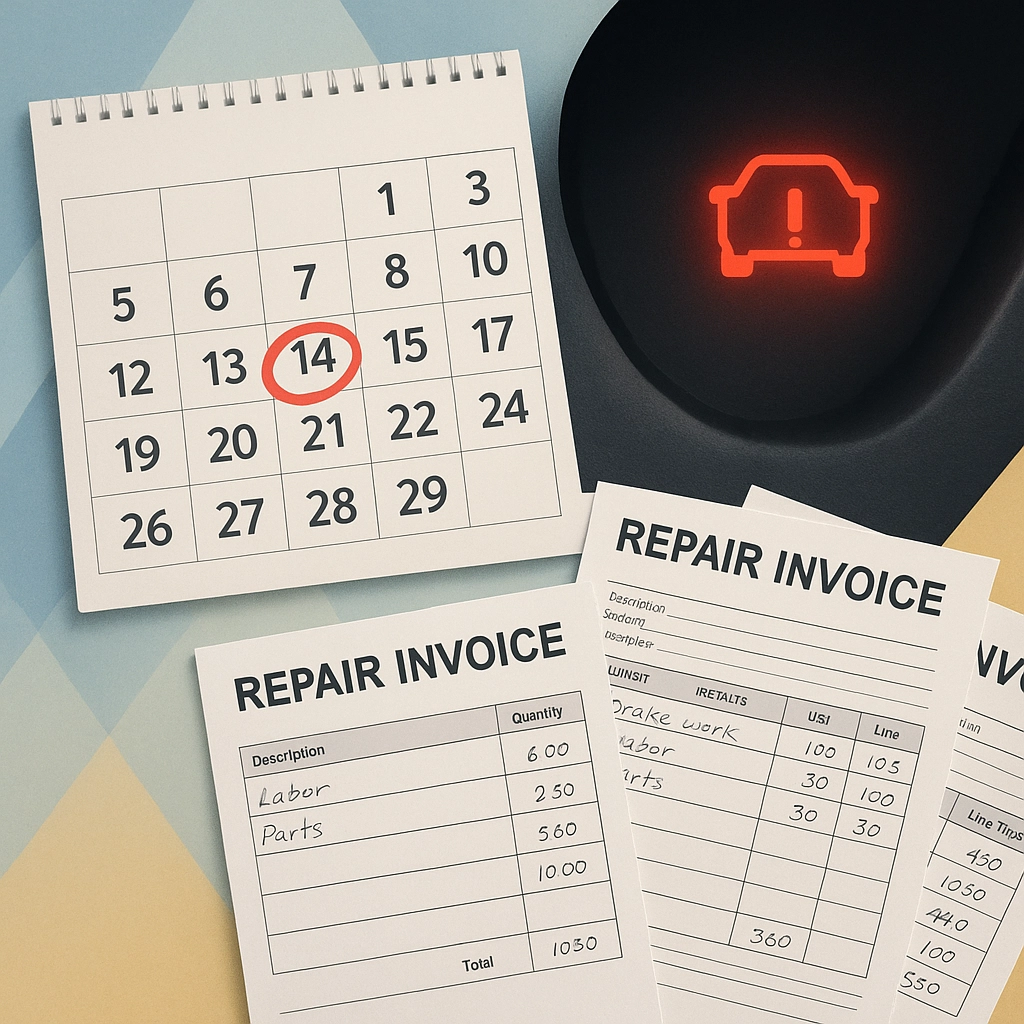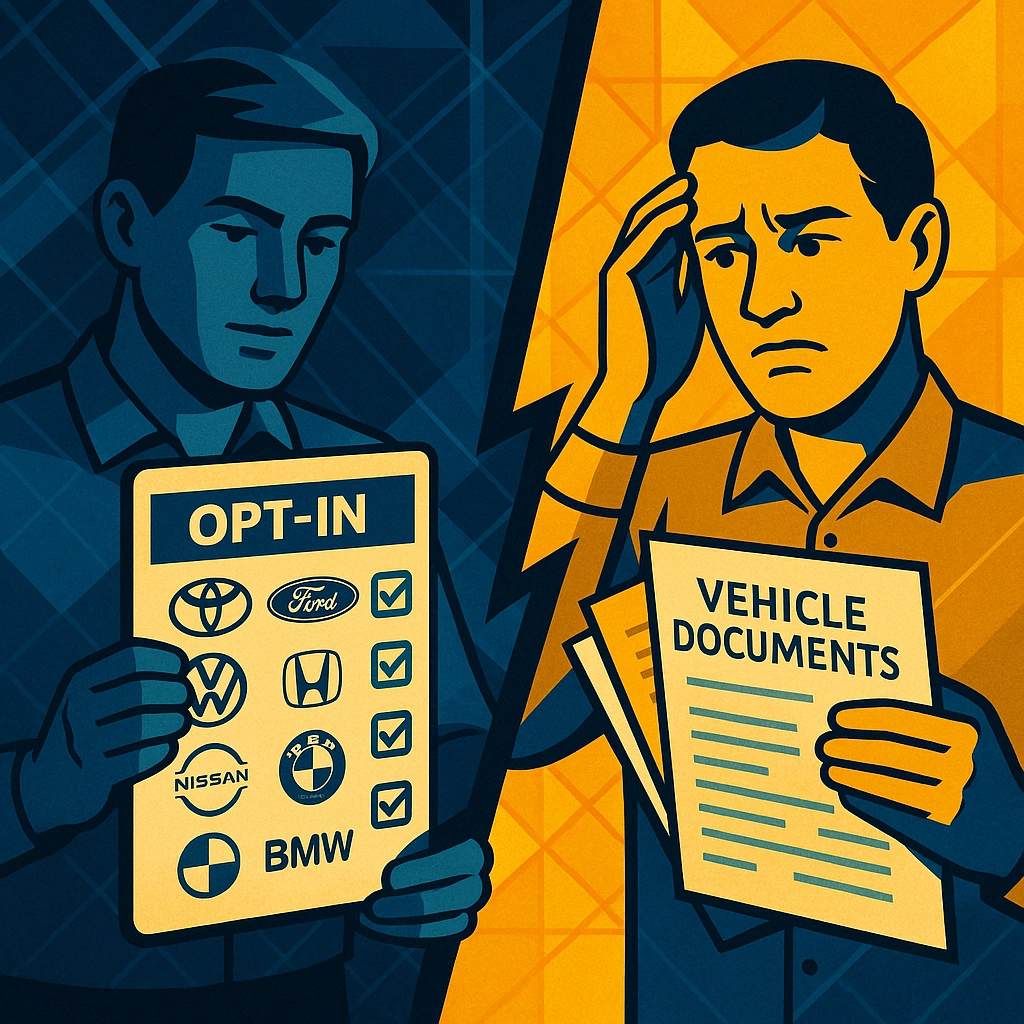California’s Lemon Law landscape looks a lot different in 2025. If you’ve bought a car in recent years or you’re stuck with a vehicle that just won’t behave, it’s time to get up to speed on AB 1755 and SB 26—the laws that have shaken up consumer rights, time limits, and the whole process of getting your lemon fixed or replaced.
AB 1755: What’s Changed for You?
AB 1755 kicks off a new era in lemon law by tightening deadlines for manufacturers and putting more steps between you and your day in court. Here’s what stands out:
1. Shorter Statute of Limitations
Under AB 1755, you must now file your lemon law lawsuit within one year after your vehicle’s express warranty expires—and in any case, within six years of the car’s original delivery to its first owner. Whichever of these comes first is your hard stop.
What does this mean in plain English?
- If your bumper-to-bumper warranty is three years, you have only four years from when the car was originally leased/sold to make a claim—even if the warranty hasn’t run out!
- If you’re the second or third owner, the clock is still ticking from that very first delivery date—not from when you bought the car.
Bottom line: Don’t procrastinate.
Why It’s Bad for Consumers: Your vehicle’s warranty might be 10 years, but if you don’t make a claim within 6 years, you’re out of luck. Also, there is little you can do to enforce the warranty in years 6-10. That 10 year warranty could be meaningless.
2. Mandatory Written Notice Before You Sue
Starting April 1, 2025, there’s a new pre-suit step: you have to give the manufacturer formal, written notice at least 30 days before you file a lawsuit if you want to seek civil penalties.
Your written notice must include certain information. It must be sent to a specific email or address.
Plus, you have to keep (and not sell or trade-in) the vehicle during those 30 days to allow a response from the manufacturer.
Why this matters: If you skip this step and file a lawsuit anyway, you’ll lose the right to certain penalties. Judges are strictly enforcing this, so don’t leave it to chance.
3. Mandatory Mediation
AB 1755 requires both sides to attend mandatory mediation within 150 days after the lawsuit gets answered (i.e., after the manufacturer files its response). Litigation pauses until mediation is complete.
In English: Both sides have to try to settle first. If mediation fails, only then can you dig in for full discovery and trial.
Why this is bad for consumers: Manufacturers delay the mediation which means it could take 6 months before the mediation even takes place. Meanwhile, you are stuck with your problematic vehicle.

SB 26: The Manufacturer Opt-In System
SB 26 creates a two-lane system—with two sets of rules, depending on your car’s manufacturer.
How It Works:
- Manufacturers were given a chance to “opt in” and adopt all the AB 1755 changes by July 1, 2025. If they did, those rules apply to their vehicles for the next five years (renewable in five-year blocks).
- If a manufacturer didn’t join by the July 1 deadline, they can still opt in at the end of any year, applying to cases starting the following year.
Why Does This Matter To You?
- It gets confusing on which manufacturers opted in and which ones did not.
- It gets confusing on which lemon law applies to your case.
- If you own a vehicle from an “opted-in” brand (think: some major automakers, but not all), all the new AB 1755 rules apply.
- If not, the old lemon law process may still be in play. But manufacturers can opt in and out—so always double-check your car’s situation before you act.
Pro tip: Your case could get a whole lot easier (or trickier) depending on which side of this divide your vehicle’s brand falls.

What’s the Goal? Quicker, Fairer Results—But Not Without Critics
Supporters’ Viewpoint
Supporters of AB 1755 and SB 26 praise the reforms for shaking off the old, slow system. They see the following benefits:
- Lawsuits should be resolved faster, dragging on for months instead of years.
- The mediation requirement will hopefully lead to more settlements—meaning less courtroom drama and cost for everyone.
- Fewer “frivolous” claims as buyers must act quickly and document everything.
Consumer Advocates’ Concerns
Not everyone’s cheering. Consumer advocates say:
- The tough new deadlines could trip up ordinary car owners who didn’t realize their car was a lemon until it was almost too late.
- The written notice requirement might let manufacturers stall, ignore, or somehow game the process.
- Mediation—while sometimes helpful—can also pressure consumers to settle for less.
The big complaint? The new system is undeniably more complex, and anyone who doesn’t stay on top of the paperwork, timelines, and manufacturer rules could lose out.

How These Changes Affect California Car Owners
Let’s put it simply: Everything is more time sensitive.
What You Need to Do:
- Document everything—dates, repairs, conversations, and notices.
- Contact Law Offices of Sotera L. Anderson as soon as possible so the written notice can be sent in pronto if you’re running into trouble with your vehicle.
- Beware: The clock is running from when your car was first delivered, not when you first started noticing issues.
If You’re in the Middle of a Lemon Law Mess (or Think You Might Be):
- Check which system your manufacturer is under—old rules or new (opt-in) rules.
- Don’t miss your chance: Waiting too long means you may forfeit your claim, no matter how bad your car is.
- Consult an expert—the rules have gotten complicated, and mistakes can be costly. Chat with a lawyer who lives and breathes California lemon law (like the Law Offices of Sotera L. Anderson, hint, hint).
Key Dates to Remember
- January 1, 2025: Phase one of AB 1755 takes effect (shortened limitations, new procedures).
- April 1, 2025: Written notice requirement and some other key steps become mandatory.
- July 1, 2025: Manufacturer opt-in deadline; courts gain new enforcement powers.
Missed your window? Even if you’ve already missed one deadline, there may be wiggle room—don’t assume you’re out of options until you’ve talked to a professional.

California Lemon Law: More Complicated, But Still There to Help
Even with these new headaches and rules, the foundational goals of California’s lemon law haven’t disappeared. You still have the right to a safe, reliable vehicle—and manufacturers are still on the hook for repeated, serious defects under warranty.
Just keep in mind: Evidence and fast action are everything now.
Got questions about your car, your rights, or what deadlines apply to your case? Get the help you need before another week ticks by. For resources, FAQs, and more, check out our main website: Law Offices of Sotera L. Anderson.
The above is general info and not legal advice. Every case is different, so get specific legal help for your situation. Want to learn more about California’s reformed lemon law?
 Call Us Now
Call Us Now Text Us Now
Text Us Now
 (855) 965 3666
(855) 965 3666

